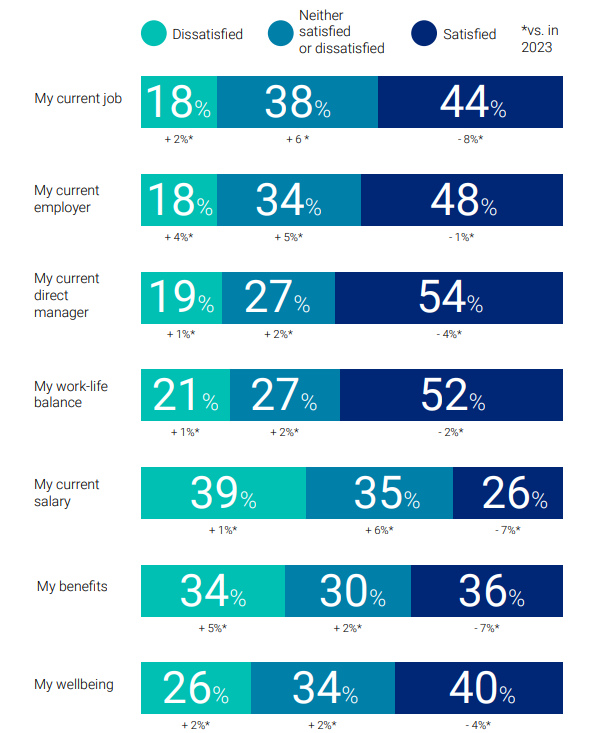Workers 'fed up,' says report, citing 'wages that haven't kept up with inflation, mounting stress, rise in dissatisfaction levels'

Quiet quitting is turning into actual quitting for many Canadian workers, according to a recent report.
Overall, 71 per cent of workers want to leave their jobs in the next 12 months, up from 61 per cent in 2022.
This trend could be a major hit to employers, many of whom expect permanent employee headcount to increase (51 per cent) or remain the same (39 per cent), finds a report by Hays.
And as the economy recovers, this will only get worse, says the report.
“As 25 per cent of the workers that answered they don’t intend to leave their jobs this year, they would consider leaving when the economy and unemployment stabilize, increasing the potential leavers to 78 per cent.
“And as our data reveals what appears to be an end to the layoffs, with 51 per cent even intending to increase their headcounts, job opportunities in 2024 could be about to rise, giving these employees ample opportunity to make the move.”
Forty-two per cent of workers have already started looking or plan to look for a new job in the first half of 2024, according to a previous report from Robert Half.
Why are workers so unhappy?
Many employees are just not okay right now, according to Hays’ survey of over 4,500 respondents, conducted between Nov. 25, 2023 and Jan. 12, 2024.
Overall, 55 per cent feel more stress this year than last year, and 46 per cent are unmotivated.
Among workers, there is growing dissatisfaction when it comes a variety of aspects of their employment life:

Source: Hays Canada
“Canadian workers are fed up. From wages that haven’t really kept up with inflation, to mounting stress, there’s a noticeable rise in dissatisfaction levels among employees, especially concerning salary, job roles, and benefits. This is leaving Canadian managers with an unmotivated workforce,” says Hays in the report.
“The increasing cost of living in Canada compounds this challenge, putting additional strain on employees’ financial well-being.”
Over half (53 per cent) of workers in Canada are having a negative feeling about work, while nearly one-third (30 per cent) of these workers feel tired and overworked, according to a previous ADP Canada report.
What are the best ways to motivate employees?
One thing that workers are looking forward to is a pay increase.
Overall, 59 per cent of respondents intend to ask for a pay raise. Among them, 33 per cent are expecting an increase of three to five per cent from their employers. Meanwhile, 23 per cent expect a pay rise of 10 per cent.
And the majority (87 per cent) of hiring managers also anticipate making pay raises in the next 12 months.
Employers say that employees’ salaries will see the following increases:
- Three to five per cent increase (51 per cent)
- One to two per cent increase (20 per cent)
- Six to nine per cent increase (eight per cent)
- Increase of 10 per cent or more (eight per cent)
However, 13 per cent of companies have no intended pay increase.
More than eight in 10 (81 per cent) Canadian professionals are on the hunt for new job opportunities this year, driven by the quest for better pay, according to a recent report from Robert Walters.
Outside of money, the top motivators for employers, according to Hays, are:
- Greater recognition by the company (35 per cent)
- Training and continuous education (29 per cent)
- More responsibility and promotion (29 per cent)




